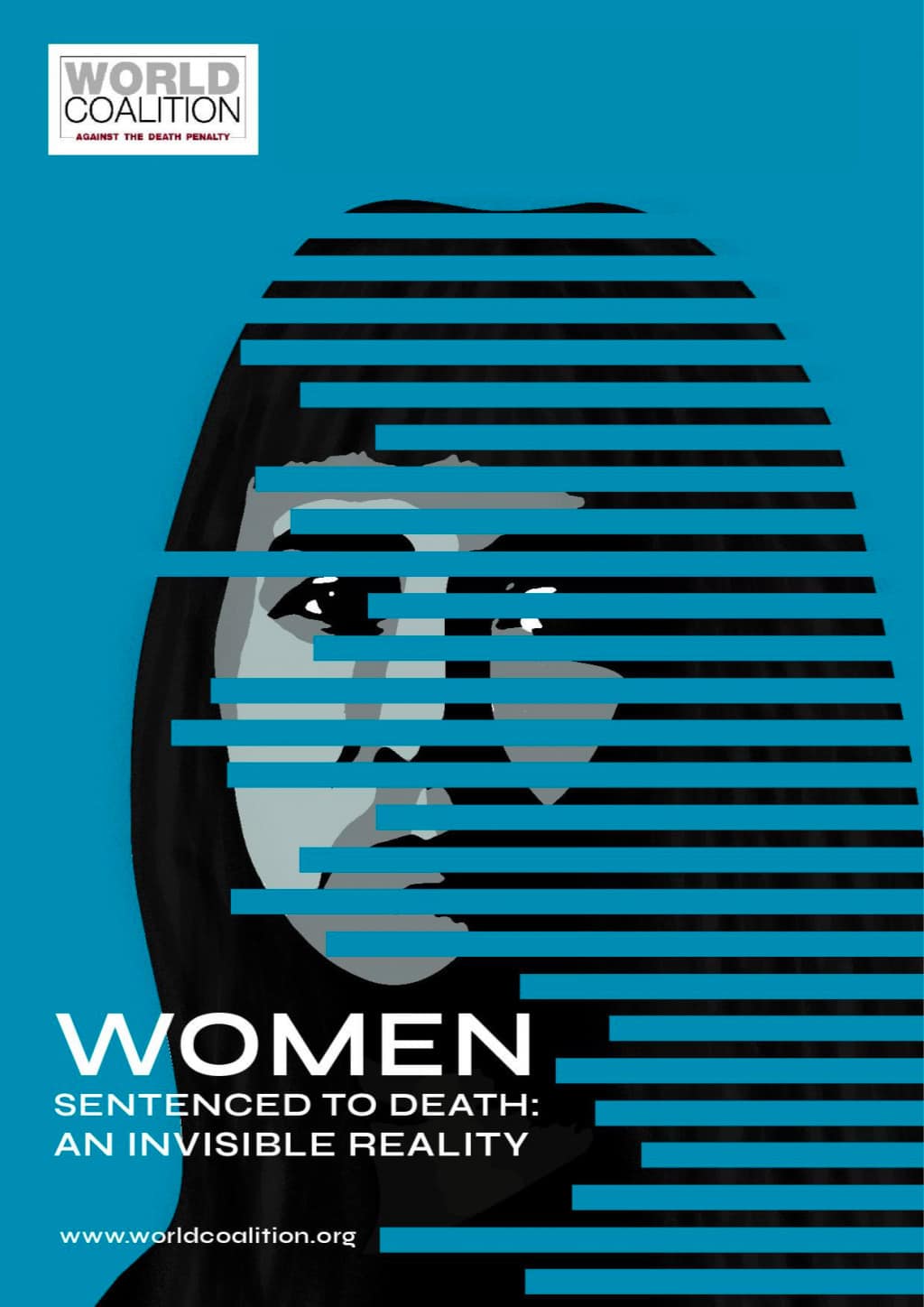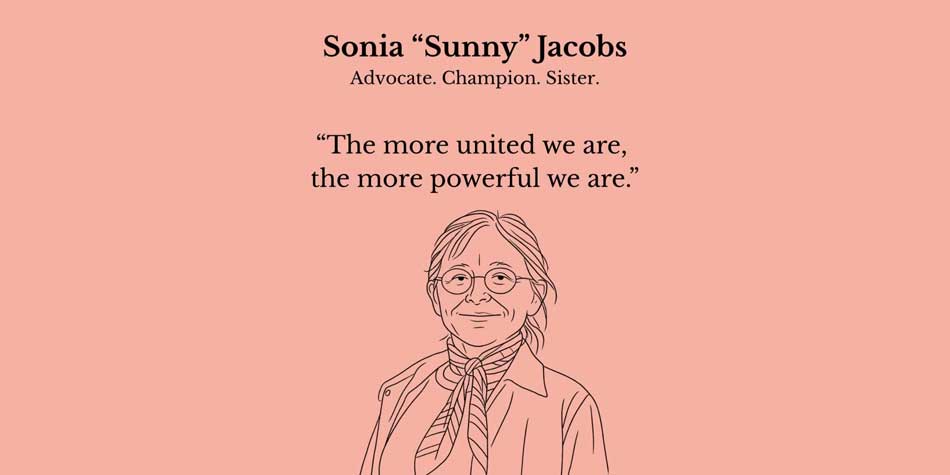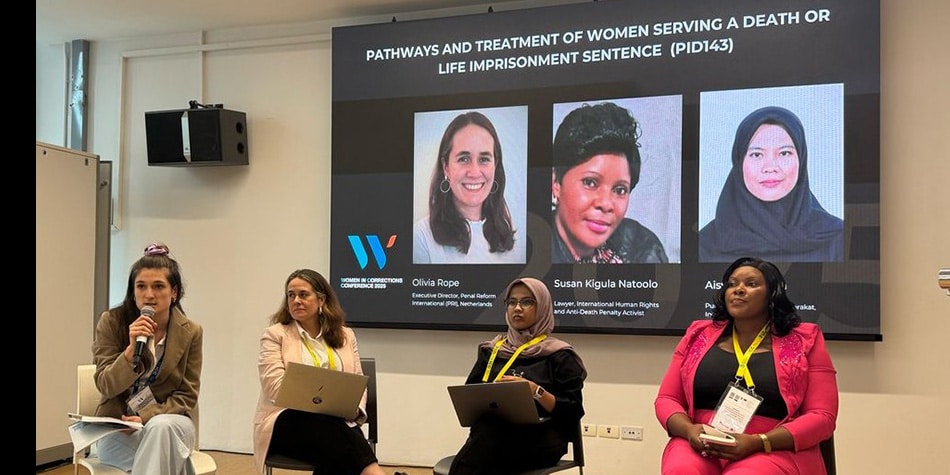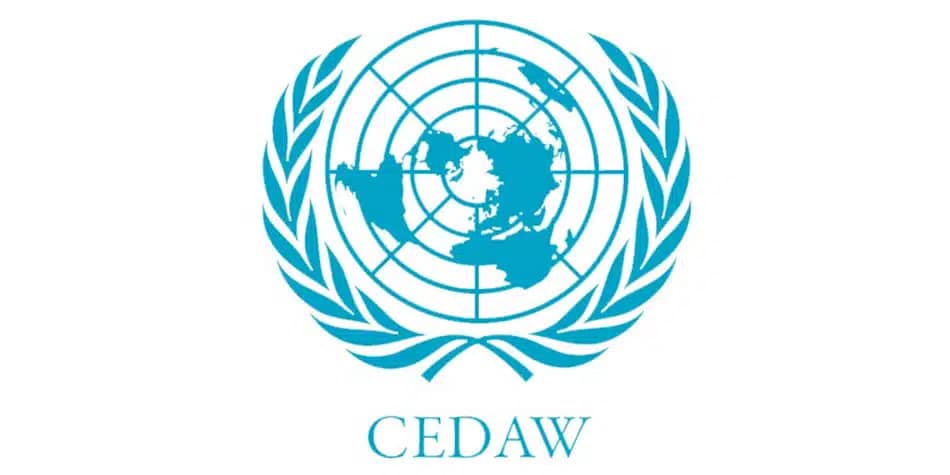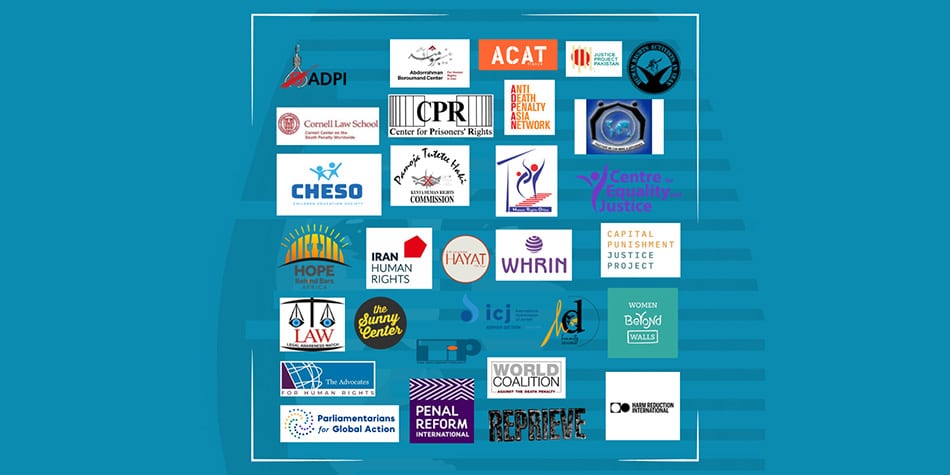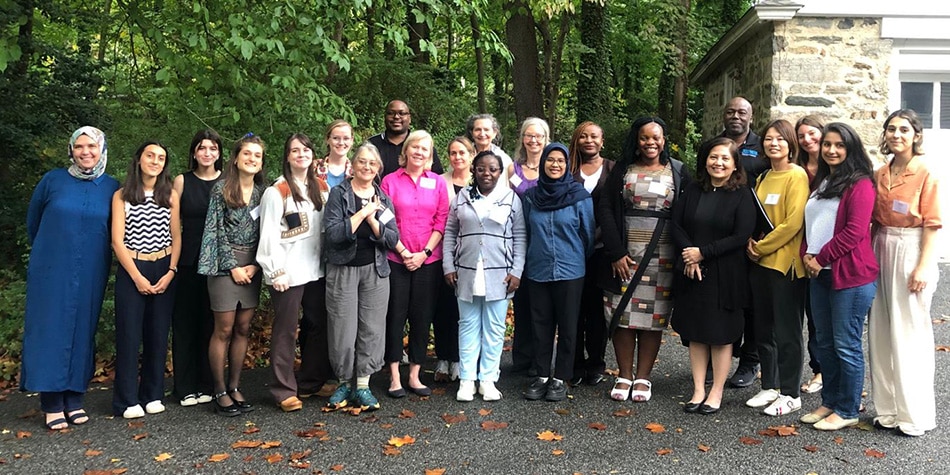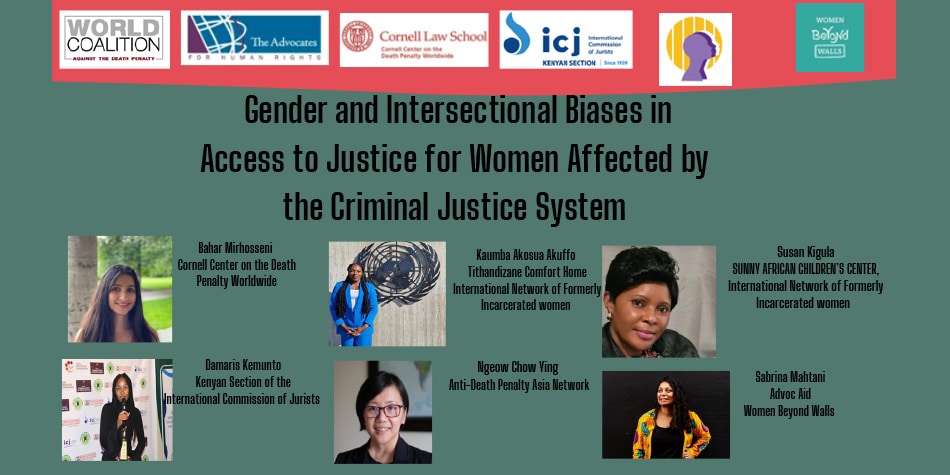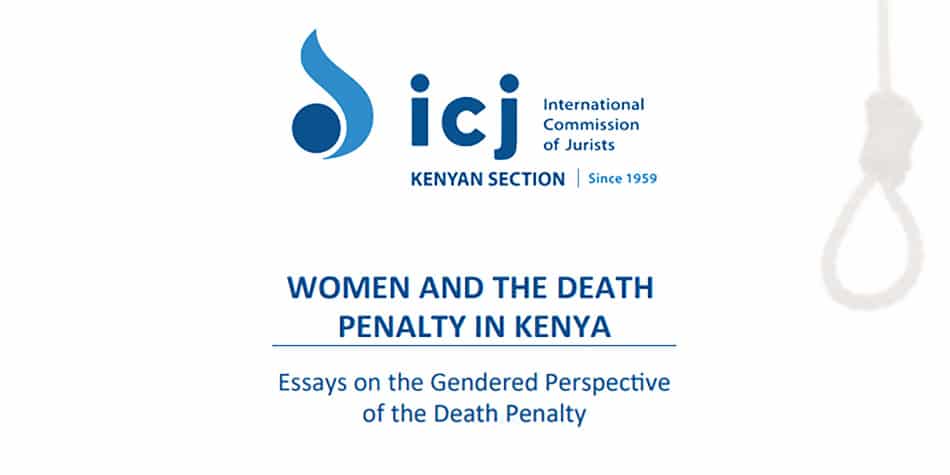Making gender discrimination in capital punishment visible
For the World Coalition Against the Death Penalty, the fight for the abolition of the death penalty must be based on an intersectional and gender-based approach. Since 2021, on World Day Against the Death Penalty, dedicated to the invisible reality of women sentenced to death, the World Coalition has been proactively engaged in raising awareness of the intersectional discrimination faced by women and LGBTQ+ people in the judicial process leading to the death penalty. The World Coalition is currently concentrating its efforts on these issues primarily in the following countries: Cameroon, Indonesia, Iran, Japan, Jordan, Kenya, Malaysia, Nigeria, Saudi Arabia, Sri Lanka, Tanzania, Thailand, Uganda, and the United States.
-
Understanding the link between gender discrimination and the death penalty
Women and the death penalty
Although women currently make up less than 5% of the global death row population, analysis of their profiles, backgrounds, and crimes for which they were sentenced to death deserves particular attention as it reveals the significant existence of gender biases in capital punishment proceedings. Women are exposed to intersectional discrimination throughout the judicial process leading to the death penalty as well as once on death row.
The 2018 Cornell Center on the Death Penalty Worldwide report, the first comprehensive report on the subject, shows that a large majority of women on death row are from ethnic and racial minorities, non-literate, have intellectual, mental and/or psychosocial disabilities, and have experienced gender-based violence. In some regions, such as the Gulf States and Southeast Asia, most women on death row are migrant. The weight of gender discrimination is also reflected in the judicial process. Gender bias is present at the investigation stage, where law enforcement agencies display gender bias; at the trial stage, where many women do not have access to a fair trial due to lack of economic resources; and at the sentencing stage, where gender-related antecedents and circumstances of the crime, such as a history of gender-based violence, are not considered. Once in prison, women’s gender-specific needs, including sexual and reproductive health, medical and mental health care, protection from gender-based and sexual violence, and substance use harm reduction services, are not addressed.
« A human rights-based approach to capital punishment cannot be complete without a gender component » Agnès Callamard, UN Special Rapporteur on extrajudicial, summary or arbitrary executions, 2018
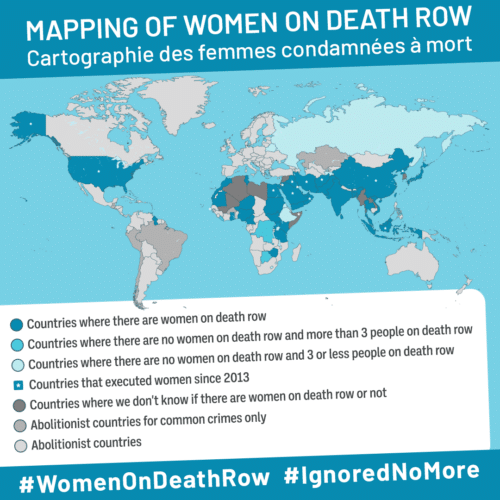
Gender and sexual minorities and the death penalty
LGBTQIA+ individuals1 are also exposed to discrimination in the application of the death penalty. Sexual minorities are first directly stigmatized by criminal laws. 11 states worldwide (Afghanistan, Saudi Arabia, United Arab Emirates, Iran, Mauritania, Qatar, Nigeria, Pakistan, Somalia, Yemen, and Brunei) apply the death penalty for consensual same-sex sexual activity. In many countries, other morality-based offenses, such as « cross-dressing » and « offenses against public morals » are grounds for criminal prosecution that can lead to death sentences. Once on death row, gender and sexual minorities are particularly vulnerable to abuse and mistreatment.
The World Coalition believes in the importance of a gender analysis of capital punishment to raise awareness of the inhumane and discriminatory nature of the death penalty and to advocate for its total abolition.
1 The World Coalition Against the Death Penalty chooses to use the acronym LGBTIQIA+ in order to use the most comprehensive and inclusive “umbrella” term. It is important to note that these terms and acronyms are neither universally accepted nor uniformly used.
-
Gender and the Death Penalty at the World Coalition
The integration of a gender-based perspective on the death penalty is one of the commitments of the World Coalition Against the Death Penalty. Together with its members, it implements actions aimed at strengthening the protection of women and LGBTQ+ people facing the death penalty and, more broadly, works to highlight intersectional gender discrimination in the capital punishment process.
The World Coalition is currently focusing its “gender and the death penalty” actions in the following countries: Cameroon, Indonesia, Iran, Japan, Jordan, Kenya, Malaysia, Nigeria, Saudi Arabia, Sri Lanka, Tanzania, Thailand, Uganda, and the United States.
Strengthen the capacity of civil society organizations
The World Coalition Against the Death Penalty assists its members to strengthen their knowledge and skills to incorporate a gender-based approach in their abolitionist actions.
This support is done through the following actions:- coordination of a Gender Working Group, composed of all World Coalition member organizations with an interest or expertise in gender;
- managing a mailing list for all partner organizations in the 14 target countries to share opportunities for collaboration and relevant information;
- developing and facilitating training and practical tools on the integration of gender issues in the abolitionist struggle;
- capitalizing on and sharing good practices on how to develop a gender-based abolitionist strategy;
- accompanying members in a gender-sensitive mobilization for the World Day Against the Death Penalty.
Strengthen links with women’s, gender and sexual minority rights movements and organizations
The World Coalition Against the Death Penalty believes it is important to strengthen the abolitionist movement’s ties with women’s rights and gender and sexual minority organizations. To this end, the World Coalition invites these organizations to join the abolitionist movement and to collaborate in the development of joint events and tools.
Strengthen the knowledge of UN member states and abolitionist human rights organizations to advocate for a gender-sensitive approach to abolishing the death penalty.
The World Coalition Against the Death Penalty supports the coordination of gender-sensitive international abolitionist advocacy. Particular attention is paid to the systematic integration of gender issues in the advocacy carried out with all human rights mechanisms as well as in the implementation of specific advocacy with specialized mechanisms on women’s rights such as the Committee on the Elimination of Discrimination against Women.
-
External ressources:
- United Nations Office on Drugs and Crime, The bangkok rules: United Nations Rules for the Treatment of Women Prisoners and Non-custodial Measures for Women Offenders with their Commentary, (December 2010)
- LGA World, State-Sponsored Homophobia 2020: Global Legislation Overview Update, by Lucas Ramon Mendos, Kellyn Botha, Rafael Carrano Lelis, Enrique López de la Peña, Ilia Savelev, and Daron Tan (Geneva: ILGA, Dec. 2020)
Suscribe to our new quartely newsletter on gender & the death penalty


